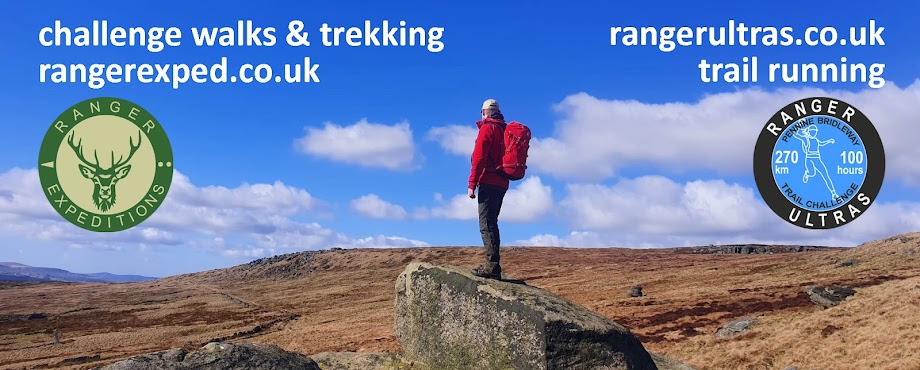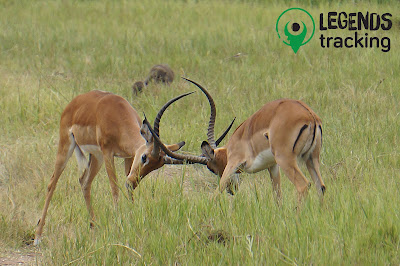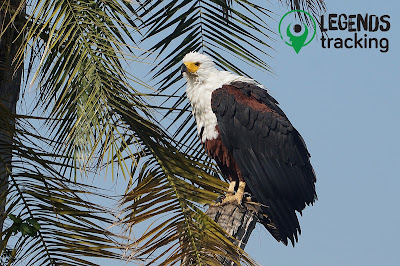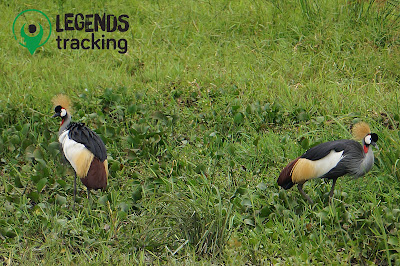Thirteen years ago, I visited Akagera National Park, in Rwanda. I wrote at the time it was already a conservation success story. My time at Akagera was a bonus excursion I'd fitted in as part of a journey for a group who's primary aims were cultural engagement and contribution to NGO projects.
To be honest, if safari had been the sole focus we would have planned a completely different itinerary. But I'm so glad we didn't as Akagera has given us a powerful story.
Link my 2012 expedition report: Rwanda Memories
Akagera was decimated during the 1994 genocide as, from their refuge across the border in Tanzania, the RPF (Rwanda Patriotic Front) launched its counter attack maneuvers against the Interahamwe militia. Soldiers and hungry civilians used the park as a larder. Poaching was rife, leaving the animal population shot out.
My memories of Akagera were ones of a National Park in the early stages of rehabilitation. That is not to say a considerable amount of work and investment had not already been made into security and infrastructure. These things take time and progress rebuilding the trophic pyramid has to be made from the ground upwards. First securing the habitat to allow successful repopulation.
We had some excellent viewings of odd and even toed ungulates. In particular, watching a pair of the rare swamp dwelling Sitatunga splash across reedbeds was a treat: Perhaps one which was lost on the youth group I was guiding at the time, who were more interested in the elephant. More of those later.
Also the birding was a joy, with wonderful splashes of colour from Lilac-breasted roller. We also kept a keen eye open for Shoebill stork which was known to nest in the wetland areas. But this one-of-a-kind species, which shares characteristics with stork and heron, remained elusive.
My only Shoebill 'sighting' has been a historic taxidermy specimen in Oxford Natural History Museum, which enabled closer study of the distinctive bill, specialised to grab large prey, including lungfish, tilapia, eels, and snakes. It even snacks on baby crocodiles and Nile monitor lizards. I hope one day to be able to see and appreciate a live Shoebill in the wild.
During the intervening years, there have been several high profile translocation projects, reintroducing species, including lions from South Africa in 2015 as well as 18 black rhinos from South Africa in 2017, along with a further five from zoos in Europe in 2019
In 2021, thirty White rhino were introduced in the largest ever single translocation.
Link to the full feature: https://www.africanparks.org/rwanda-welcomes-30-white-rhinos-largest-ever-single-translocation
Akagera has risen to fulfil it's potential that was so evident on my visit all those years ago. It is now a Big 5 destination with thriving populations of lion, leopard, rhino, elephant and Cape buffalo. No doubt these area an ideal gateway attraction, but of course safari is about so much more.
Link to the Big 5 in Akagera: https://www.akageranationalparkrwanda.org/big-5-in-akagera/
There is also a superb diversity of other species, including zebra, giraffe, crocodile, hippo, hyena and many antelope.
Primates are well represented with olive baboon, silver monkey, vervet monkey and blue monkey.
Twitchers will not be disappointed either. Home to over 500 species, Akagera offers superb birding.
Recently, friends from Legends Tracking spent a few days on safari in Akagera and stayed in the Mantis Lodge, the only luxury hotel within the park. I listened intently to Tim, Fre and their two girls impressions and their take away highlights from their trip. It was lovely to hear how many more animals there were. Their evident enjoyment was a special trip down memory lane for me too.
Tim very kindly shared the safari pictures taken by his daughter. I'm delighted to show a handful of these in this blog, with credits.
Tim and family saw the beautiful Crowned Crane in Akagera.
For folks who are familiar with Ranger Ultras Trail Running, our 'Medals For Wildlife' scheme offers those participants who don't collect or retain their race medals, the opportunity to hand back their race medal (after a finishing photo celebration). We then recycle the race medals to the next event. At the end of each trail running year we add up the total and donate £3 for each medal's value to Tusk Trust.
Medals For Wildlife: https://rangerultras.co.uk/index.php/medals-for-wildlife/
One of the conservation projects supported by Tusk Trust in Rwanda is the to reverse decline of the endangered Crowned Crane, threatened by habitat loss and poaching. The project locus is in the Rugezi Marsh, one of the headwaters of the Nile.
Link to the full feature: https://tusk.org/projects/rwanda-wildlife-conservation-association/
Back to Akagera: I never stayed at the Mantis Lodge, but I did take my group there for refreshing afternoon drinks before our drive back to the NGO project base. I recall the lodge being noticeably under occupied, indeed the opposite of the lodges I had overnighted at in Tanzania and Kenya.
I asked Tim & Fre how their stay went at Mantis. There were more guests there and they enjoyed the venue, but it was still quiet. This seems a pity as Akagera is now resurgent in it's quest to become a premiere wildlife viewing destination.
Link to Mantis Akagera: https://www.mantiscollection.com/hotel/akagera-national-park-mantis-eco-lodge/
It's Big 5 status and affordable game drive fees are absolutely a massive enticement, especially so with the escalating prices and over tourism in other African national parks.
Akagera should be at the top of the wish list for anyone seeking an uncrowded safari with world class game viewing.
Thirteen yeas ago, I wrote, Akagera was a national park in ascendancy.
Today it has truly arrived. Best get there soon.
Stu Westfield
Ranger Expeditions & Ranger Ultras Trail Running
*****
If you liked this topic, I invite you to browse my other blog postings.
With a range of stories and features including: Nature, conservation, history, culture, culinary treats, expeditions, trail running and guided adventures.
Ranger Expeditions
Ranger Ultras Trail Running












No comments:
Post a Comment